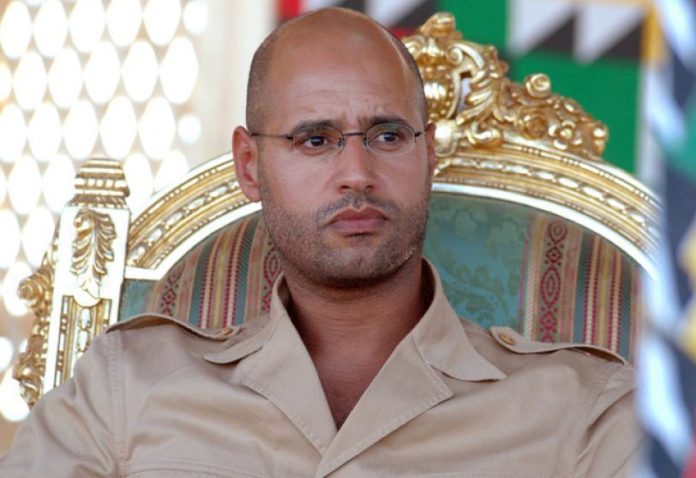The son of the late Libyan ruler, Muammar al-Gaddafi, has registered as a presidential candidate in the country’s elections next month.
Saif al-Islam Gaddafi, 49, submitted his candidacy for the presidential election to the High National Electoral Commission office in the city of Sebha, the commission confirmed on Sunday 14 November.
Gaddafi appeared in an electoral commission video in a traditional Libyan robe with a grey beard and turban. Videos and photographs distributed on social media showed Gaddafi signing papers at the registration centre in the southern town of Sebha.
He also gave a brief election message in the video, quoting Quranic verses that translate as “judge between us and our people in truth”, “God always prevails in his purpose,” and “even if the unbelievers hate it”.
He had personified himself as a pro-democracy reformer that cared about human rights during his father’s rule, which lasted for more than 40 years. However, during the 2011 Arab Spring uprising in Libya, his image was tarnished after he joined his father in repressing peaceful protestors which resulted in the death of thousands of Libyans.
Gaddafi tried to flee Libya but was captured in his car by rebels, and subsequently taken to the mountain region of Zintan. He was later tried in absentia by Tripoli Court, and was awarded the death sentence for war crimes in 2015. Although, he was later pardoned and released in 2017, he is still wanted by the International Criminal Court for alleged crimes against humanity.
He is one of the most prominent and a controversial candidate in the upcoming election. Others who are expected to run for the Presidency include military commander Khalifa Haftar, Prime Minister Abdulhamid al-Dbeibah and the current speaker in parliament Aguila Saleh.
Subscribe to our newsletter and stay updated on the latest news and updates from around the Muslim world!
Questions are already being raised about the fairness of the elections in the country. Human Rights Watch said: “National elections are badly needed to get Libya past its violent transition, after the 2011 uprising ended Muammar Gaddafi’s 42-year rule. But human rights conditions in the country remain precarious. Free and fair elections will hardly be possible without rule of law, justice, and accountability that are currently sorely lacking.
“The upcoming elections are a chance for a much-needed reset in Libya and international leaders should take the opportunity to ensure that when Libyans go to vote, they have the best chance to elect their new president and parliament in a free and fair way”.






















